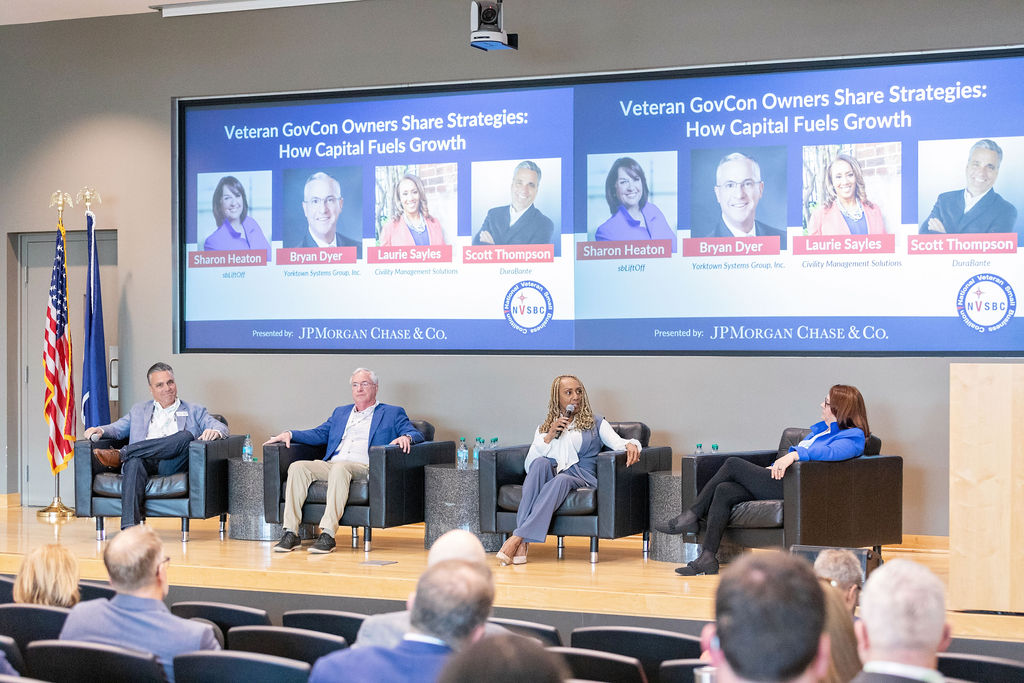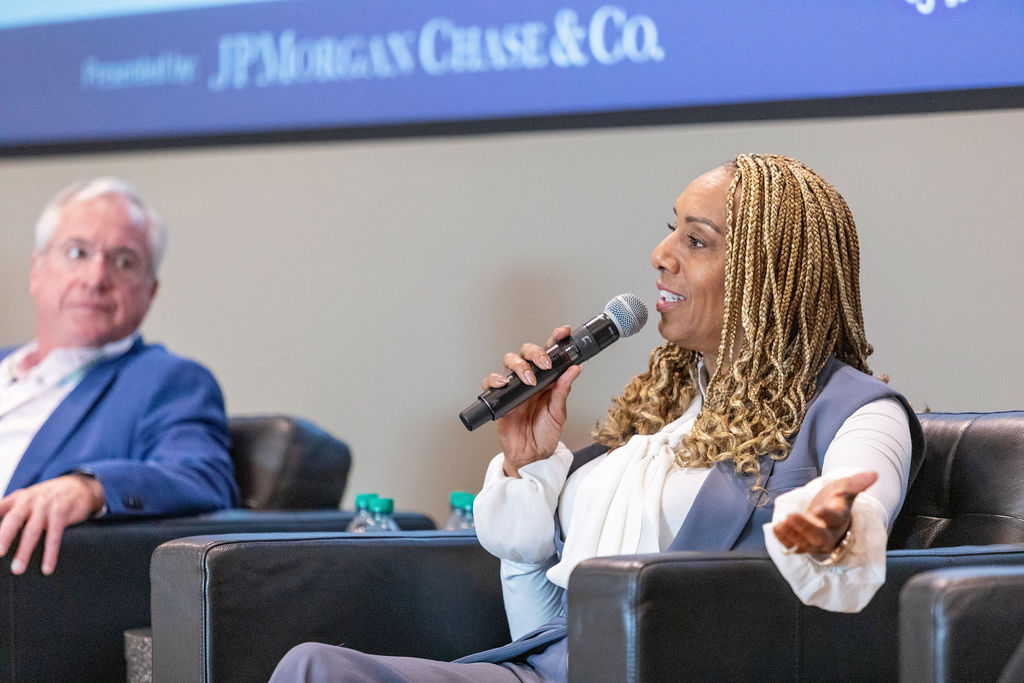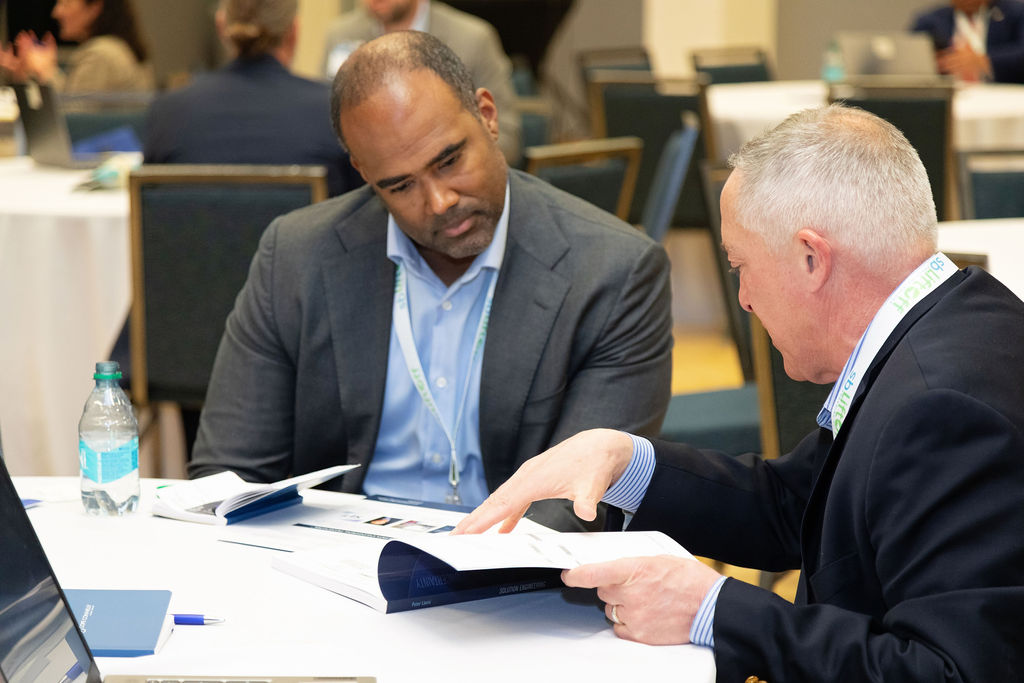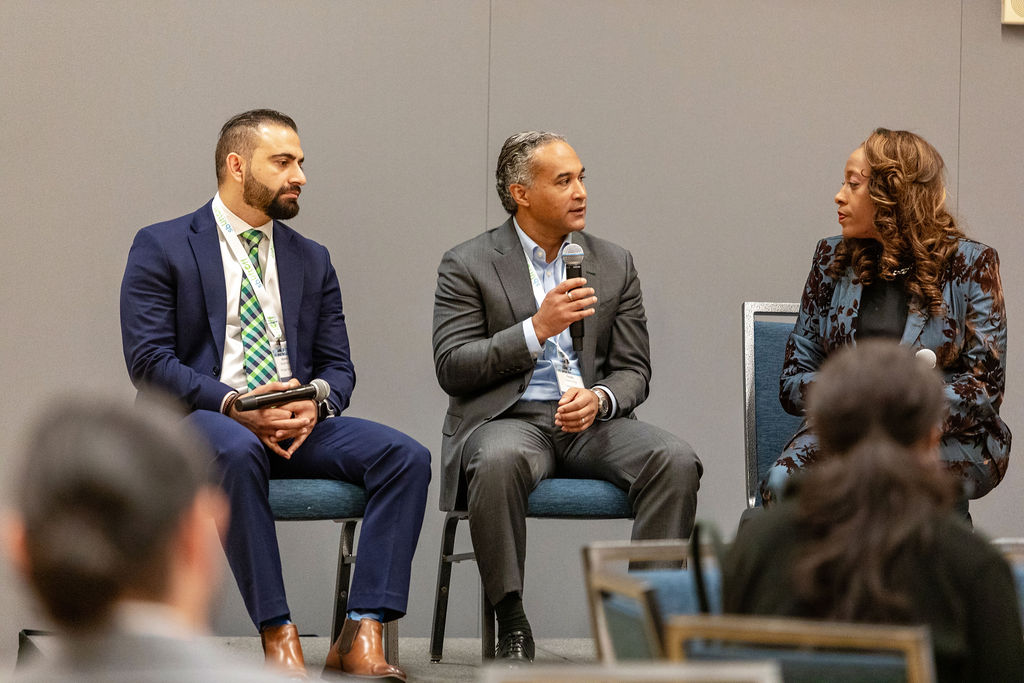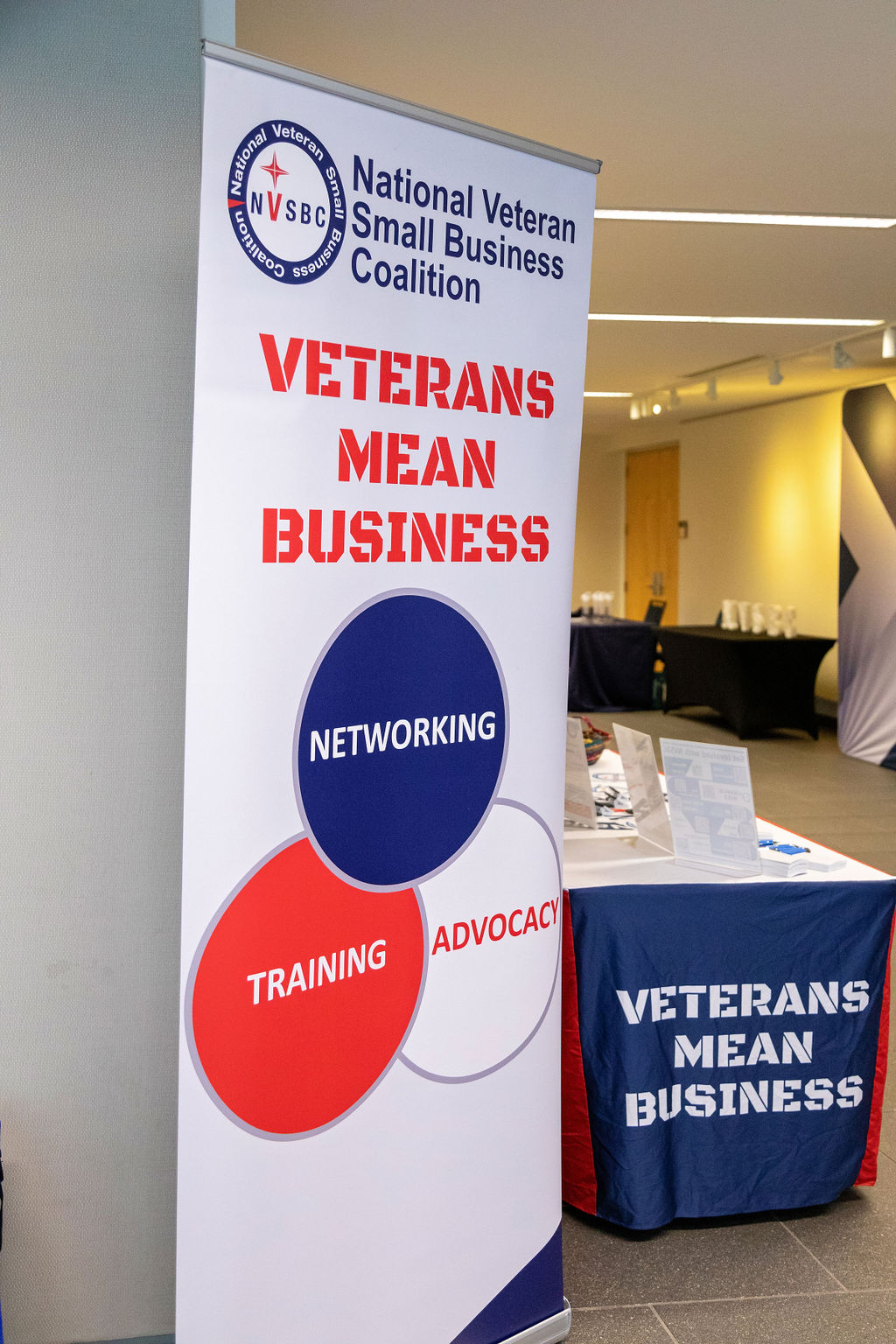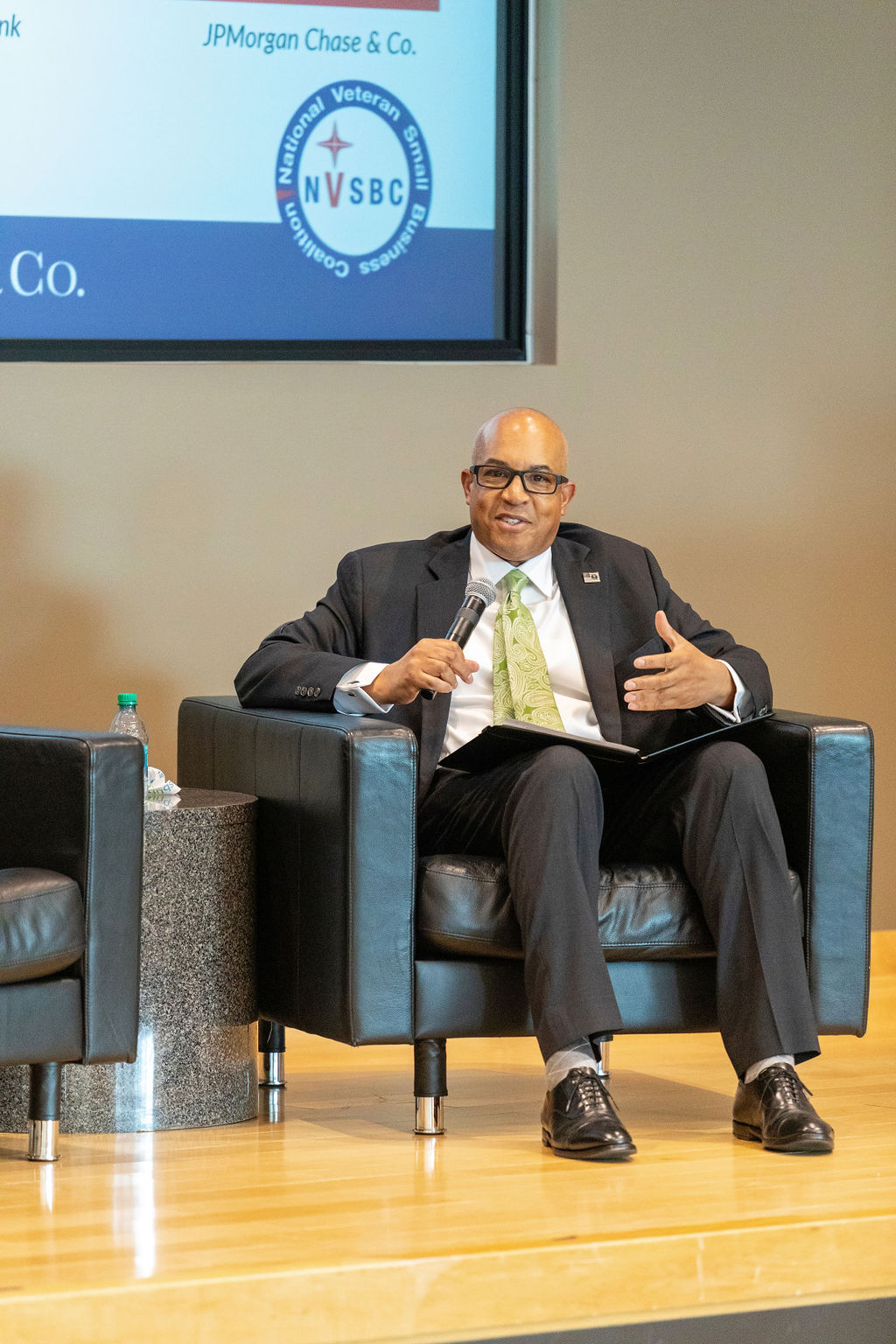NVSBC Finance Symposium
The Finance Symposium is an annual event hosted by NVSBC and is focused entirely on building capital for small business professional. This event will be hosted by the National Veteran Small Business Coalition (NVSBC), presented by JPMorganChase. Join us at the Finance Symposium Wednesday, February 25, 2026.
Event Details
- Date: Wednesday, February 25, 2026
- Time: 8:30 AM to 4:30 PM
- Location:
George Mason University Arlington Campus
3351 Fairfax Drive, Van Metre Hall, Arlington, VA 22201
What to Expect at the Finance Symposium
Learn from finance subject matter experts as they share insights for military veteran GovCon professionals at all stages of the company’s life cycle. Whether you are looking for information on start up capital, steady-state capital, growth capital, or transition capital, you’ll find answers at this event and have the opportunity to network with our experts who can share their own personal experiences.
Held at the Baroni Center for Government Contracting, attendees will experience a mix of general session panels and subject-specific breakout sessions. Participating exhibitors and sponsors will be available to answer questions and provide feedback to businesses of all sizes. Breakfast and lunch will be served, and our day will conclude with a networking reception where attendees can connect with each other and subject matter experts to further expand on the discussions held throughout the day. Virtual participants will be engaged in all our main stage presentations as well as their own subject-specific breakout sessions. Virtual participants will have the opportunity to ask questions throughout the day to our subject matter experts as well.
Education Tracks
Getting a business up and running takes money – “start-up capital.” You might need to pay your first employee, purchase equipment, rent office space, or get help with accounting or legal issues. People often think they can go to a bank and get money to fund a business idea. Banks will not lend money to pursue an idea. In short, no one will give you “debt” financing for your business idea startup. So where do you get start-up capital? You can dig into your own pocket. Sometimes people get a second mortgage on their house or use personal credit cards to get up and running. You can turn to friends and family for support, giving them a percentage of your new company in exchange — “equity.” There are some “angel investors” out there but to be interested it would have to be a very special idea and they would absolutely want equity. In very rare circumstances you might be able to get a venture capitalist interested if, for example, if you had a rare technology and a VC wanted to take a chance on you. Most advisors would tell you it is not a good idea to give away huge amounts of your company’s equity during your start-up phase. That’s why for the most part the most common form of start-up capital is investing your own “sweat equity.”
Imagine your business is functioning but suddenly a situation has come up. You need money to keep going. Perhaps you’ve just gotten a contract which will mean you will have to hire new workers and pay their salaries and expenses — but you won’t get paid by the government for your work for 90 days or more. How do you fund yourself in the interim? At this point in your business life cycle you’re eligible for debt financing from a bank. You might arrange a line of credit, or find someone who does financing of receivables. There is even pre-invoice financing available. In such moments having an established relationship with a banker or two who understand your business and trust your stewardship of it will make getting that debt financing a lot easier.
Now your business is strong enough that you’re thinking about investing in growth. Perhaps you want to acquire a contract vehicle, buy another business, hire an important professional or buy equipment or advanced technology. To fuel your company’s growth you can now look at either debt financing or equity. Angel investors, people who want to see you grow, or private equity investors, groups that see a future in your company, might be willing to provide growth capital. But they will want a share of equity in exchange. Alternatively, you could get a line of credit or another kind of loan at a bank, or you could turn to an SBIC, Small Business Investment Company, for either a debt or equity infusion.
Now it’s finally time to sell your company. In general, the buyer universe includes other small businesses, large strategics, private equity groups, serial entrepreneurs, or “searchers” – individuals seeking just one company to buy and operate. These buyers must come with the “transition capital” in order to complete a transaction with you. But where do buyers get their transition capital? In large part, most buyers depend upon other partners, such as banks or wealthy investors, to help finance their acquisition.
Partners
A special thank you to the following partners:

Sponsors
A special thank you to the following sponsors:


